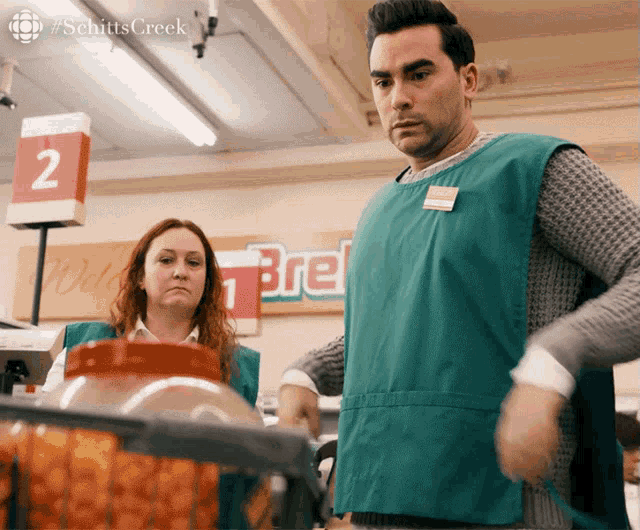Are supplements a form of medicine?
Can supplements like vitamins, minerals and novel ingredients treat diseases? Can they reverse diabetes? Can they prevent (or cure) cancer? Can they make you younger? Short answer - NO.
👋 Hola! Welcome to Out of Singapore. This is Shan and I write this newsletter every Sunday. This is the second year of the newsletter. Year 1 was all about zero to one journeys. Right now, we are working on one to ten journey. Marketing and distribution are mostly set (still long way to go, though). Product innovation is the key focus now. We have a strong mission, loyal consumers, brand story and affirmation, and cash. What we miss is - our own differentiated and unique product. This is a struggle I am gearing up towards!
I will share the product journey soon, stay tuned. But, today we will talk about the raging debate - Medicine vs supplements. Can supplements really treat common and terminal diseases?
Before I jump into the discussion, here is a short answer - NO. They cannot treat diseases. If any ingredient is capable of treating a disease, it will be quickly patented by a pharmaceutical company for a new drug. It’s that simple. So, why the debate? Let’s find out.
Today’s structure will be -
What is a medicine and a dietary supplement?
Why do consumers consider supplements as medicine?
How do you decide between supplementation and medication?
#1 What’s a medicine and a supplement?
Before I give you a formal definition, here is my take on medicine and supplement.
A Medicine contains ingredients that target a specific function in the body to solve a health condition. They have been tested on humans for over 6 years across various stages. Some medicines receive emergency usage approval within few months to a few years, however, these are rare cases.
All medicines are strong and they work fast. For example, paracetamol can reduce fever within an hour. Similarly, pain relief medicine (not OTC medicines) work fast and are effective. While medicines are safe, they do have side effects since they are meant to treat a specific condition fast.A dietary supplement is an ingredient found in food or occurs naturally in the body. These are vitamins, minerals and novel compounds. Some can be produced in the body, during biochemical reactions, and some can only be taken by food (like omega-3).
Dietary supplements work in one way - help us take recommended intake of a specific mineral that is not available in daily food (low content or absent) or reduces as we age. Some minerals do not have a recommended dosage.
Here is the official Wikipedia definition.
“Drug medicine, also known as a pharmaceutical drug, medication, or medicine, is a chemical substance that produces a biological effect when administered to a living organism. It can be used to treat, cure, prevent, or diagnose a disease, or to promote well-being. Drugs can be used for a limited time or regularly for chronic disorders.” Source: Wikipedia, Drug Medicine
“A dietary supplement can provide nutrients either extracted from food sources, or that are synthetic (in order to increase the quantity of their consumption). The classes of nutrient compounds in supplements include vitamins, minerals, fiber, fatty acids, and amino acids.”
Source: Wikipedia, Dietary Supplement
I have another interesting take. A dietary supplement is not just something you eat. These are also supplements -
Exercise (strength training, cycling, hiking, yoga)
Diet plans (intermittent fasting, keto diet, carnivore diet, vegetarian diet)
Sleep routine and recovery
Interesting?
It’s quite infuriating when someone claims that just a medicine or a dietary supplement will heal a person’s health issue. All health issues need a holistic lifestyle intervention (or lifestyle supplementation) to heal.
#2 Why supplements are being considered medications?
Increasingly consumers across the world are turning to supplements to solve their health issues. Weight loss, diabetes management, stamina increase, mood management, hormone balance, stress management, inflammation management and cellular health are being addressed by specific supplements. If you see the trend, dietary supplements are being used to manage both specific medical conditions as well as lifestyle conditions (stress).
Here are four key reasons why, I believe, supplements are gaining mainstream acceptance for “treating" medical and lifestyle conditions.
1. Rise of Preventive Healthcare
Shift in Focus: Instead of waiting for health issues to arise, people are adopting proactive strategies to maintain wellness and prevent diseases. Supplements are increasingly seen as tools for maintaining health and reducing the risk of chronic conditions like heart disease, diabetes, and osteoporosis.
Influence of Functional Medicine: The rise of functional medicine, which focuses on the root causes of disease and personalized care, has also contributed to the popularity of supplements. It emphasizes the use of vitamins, minerals, and other nutrients to optimize health and prevent disease.
Consumer Awareness: Consumers are more aware of optimal nutrient levels. This drives the demand for supplements that promise to plug these nutritional deficiencies.
2. Rapid Discovery of Novel Minerals
Innovation in Nutritional Science: Advances in nutritional science and technology have led to the discovery of novel minerals, vitamins, and other bioactive compounds. These discoveries always outpace the ability of traditional healthcare systems to integrate them into standard medical practices.
Fast Market Launch: The supplement industry is quick to create new products that appeal to consumers seeking the latest health trends.
No Regulation: Unlike pharmaceutical drugs, dietary supplements have almost no regulatory hurdles. Companies can bring new products to market rapidly, even if the evidence is still emerging.
3. Insufficient Modern Food and Lifestyle
Nutrient Deficiencies: Modern diets are often high in calories and low in essential nutrients due to the widespread consumption of processed and fast foods. These convenience foods are stripped of vitamins, minerals, and fiber.
What’s worse? Even the natural unprocessed food is not as nutrient dense as 50 years back. Food is farmed for speed to market because crop is an inventory that needs to be turned a few times a year.Lifestyle Factors: Busy lifestyles, stress, and lack of time contribute to poor dietary choices. People eat outside often, eat on the go, and rely on convenience foods, further exacerbating nutrient shortfalls.
Short cuts: Refusing to sacrifice the convenience of modern lifestyle (a perfect looking pastry and salad in a cafe), consumers resort to short cuts to fill the gap. Hence the growth of protein powders, creatine, vitamins and minerals.
4. False Advertising by Brands
Misleading Claims: The supplement industry is often makes exaggerated or misleading claims about the health benefits of their products. Companies may advertise supplements as "miracle cures" or "natural solutions" for various ailments, appealing to consumers who are looking for quick fixes.
No regulation: In many countries, dietary supplements are not regulated as strictly as pharmaceutical drugs. This allows brands to market products with minimal scientific evidence to support their claims, leading to consumer misinformation.
Combine these four factors, and consumers are lapping up any forms of supplement as a magic cure. Collagen gummies sell by the millions, protein powder sells by billions and weight loss supplements sell by trillions!
#3 How to decide between a medicine and supplement?
I hope you understand that supplements != medicine. I will repeat myself, dietary supplements != medicine. Here is how you should go about maintaining health, when you should choose food, exercise, supplement and medicine.
Everyday food - Choose single ingredient, local, unprocessed food over convenience food. Even those curries are not healthy. No, I am not sucking the fun out of your life. That convenience food (your ramen, oily curries) are sucking the life out of your body (every single day). A mix of raw and cooked veggies and meat is good. Raw meat is only allowed in Japan, okay?
Everyday exercise - I don’t want to be your papa, but please move your body. Stretch, walk, run, lift weights, go for hike, play and be active. It’s fun, and better than spending your days and nights in cafes, bars and clubs. (If you are over 30, you must have already realised this. If you haven’t, god save you 😠)
Everyday nutrition - Choose the supplements based on the needs of your body, and not advertisement you saw on your Instagram or TikTok feed. Those doctors who say something is going to change your life are also sellers. You don’t have to listen to every goddam advice on social media. You can take a nutrigenomics test or visit a doctor for blood test to find your deficiencies.
Rest and sleep well - Yes, your body needs to recover from everyday toxic life. So, prioritise your sleep, not your phone. (Damn, seems like I am shouting at you all 😂). If you sleep and rest well, you will think better and behave better. Very demure, very mindful.
Once a disease has hit, it must be treated by a doctor - If it’s not common everyday health issue (fever, cold, running nose), please see a doctor and evaluate a medical solution. Some would need medicines, others can be treated by precaution, change of lifestyle, and physiotherapy. Some would need surgery. Evaluate your options if medicine or surgery is suggested too soon. Taking a second or third opinion from other doctors is not a crime.
Don’t believe those ads - Every ad (including posts by social media creators and doctors) has the motive to sell you the product. Don’t buy based on ads. Know what your body needs.
So, choose your everyday supplementation (nutrient-rich food, exercise and sleep) for improving and maintaining your health. Visit a doctor when you already have or identified a medical condition. Fix your medical condition with medicine first, and along side improve your lifestyle to prevent recurrence. (yes, I understand these are generalist statements. I am not your doctor to give you specialist advice 😤)
For dietary supplementation, understand what your body needs. Ideally, get a diagnosis (from DNA test or blood test, not online quiz) before you start supplementing. You can also speak to a doctor to identify what your body needs. If a doctor dismisses your request, find a doctor that listens to you.
That’s all for today.
Last week was a good break. Seoul was hot and humid, but worth the visit. Seoul is quite similar to Japan (Koreans won’t agree 😂). The place had good homely vibe. People didn’t speak much English, but that’s fine. I enjoy sitting in a place and observing the white noise (languages I don’t know). It’s strangely peaceful and calming. It’s the feeling of being invisible. You can sit down and do your own thing.
I was worried that Seoul would be overwhelming and intimidating. It turned out to be normal. Would I visit Seoul again? Yes, obviously. Only regret - I didn’t get to see Jisoo. 😂
Jisoo is angry I didn’t meet her 🥹
Okay, I almost had a writer’s block today. But saved myself right in time. I wish you have a great week ahead. Cheers 🥛🥛🥛🥛 (no alcohol, okay?)








